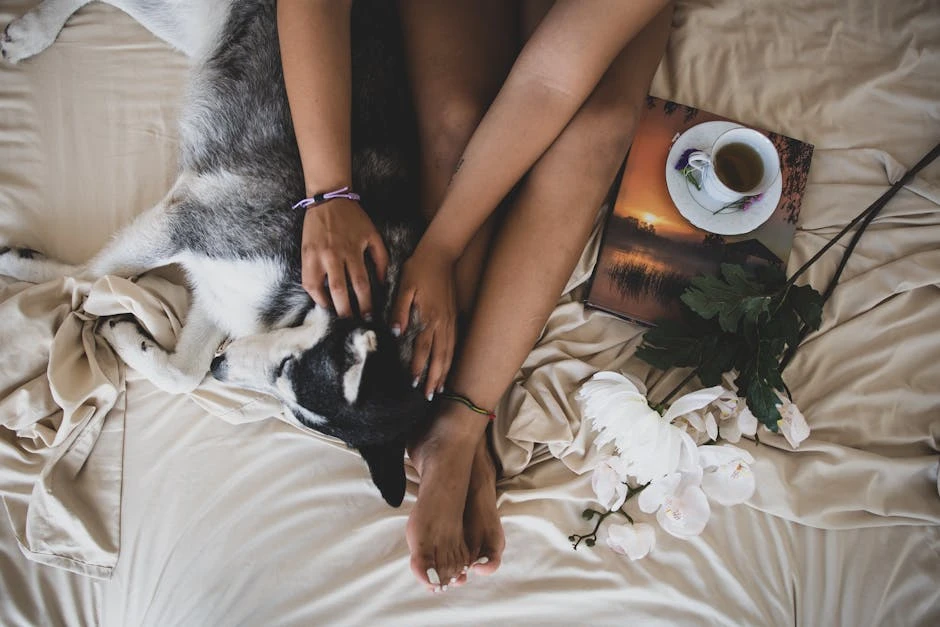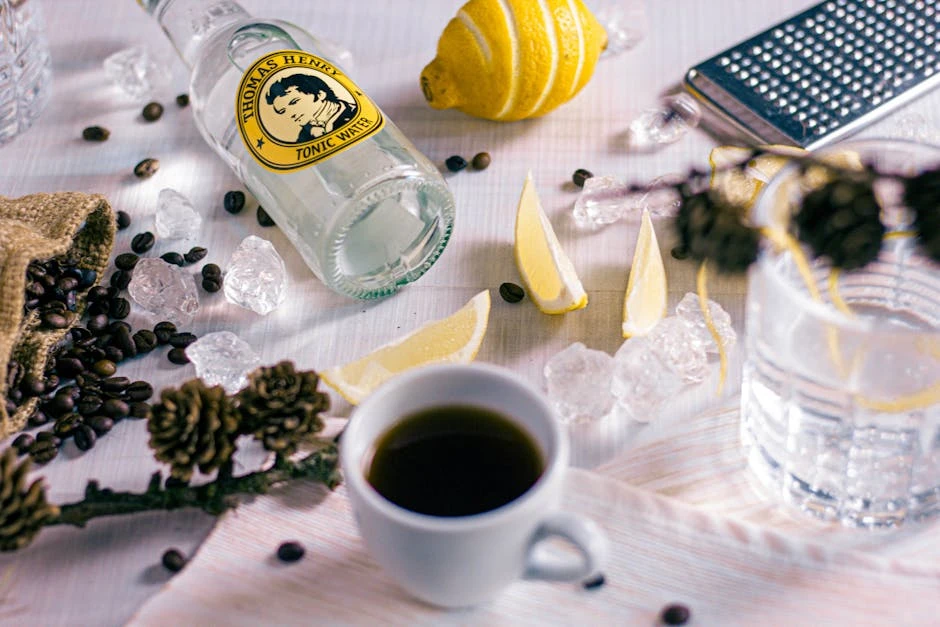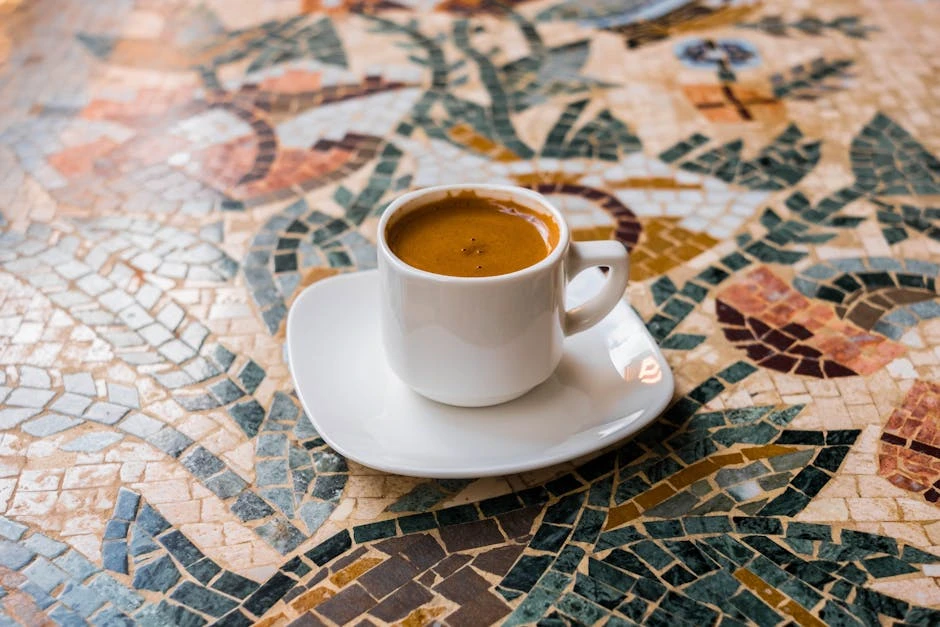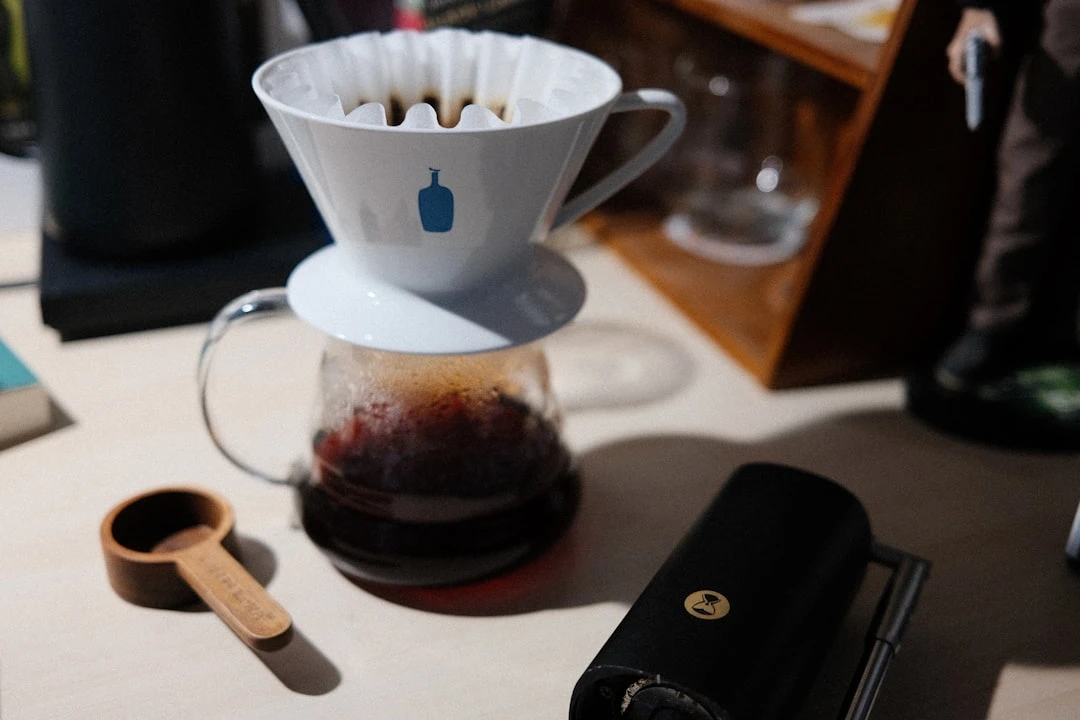Coffee vs Tea: Which Packs More Caffeine?
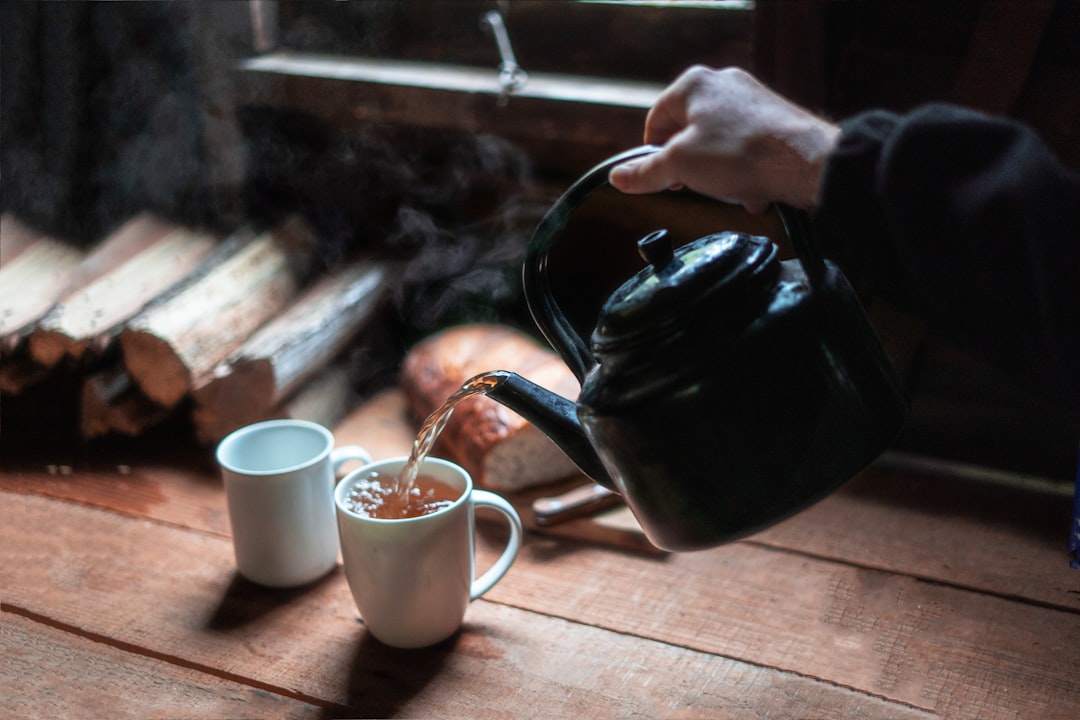
Caffeine in Coffee and Tea: A Quick Sip of Science
That first sip in the morning? You can thank caffeine for that. But here’s the catch—coffee and tea don’t just nudge you awake in the same way. The kind of buzz you get, how long it lasts, even the way it settles in your veins? It all comes down to what’s in your cup.
Let’s talk numbers. Coffee’s the obvious heavyweight—a typical 8-ounce mug carries 95 mg of caffeine, more or less. (Blame the beans, the roast, or how long you let it brew.) Black tea? 40-70 mg. Green tea’s softer, hovering around 20-45 mg. And herbal teas? Most, like chamomile or peppermint, are caffeine-free… unless they’re hiding a few tea leaves in the mix.
But tea’s got a quiet trick up its sleeve: L-theanine. This amino acid works with caffeine to take the edge off, keeping you calm but focused. Coffee? It’s more of a bolt of energy—fast, fierce, but sometimes followed by a harder drop.
So, what’s your style? A sudden jolt (espresso, we’re talking about you) or a gradual rise (matcha, this is your moment)? The way you brew it—how long it steeps, how hot the water is, even how fast you drink—shapes the whole ride.
Coffee or Tea: Which Packs the Bigger Caffeine Punch?
Ah, the age-old question—coffee or tea? If caffeine’s your focus, they’re hardly in the same league. But here’s the thing: it’s not just about which one wins. How you brew it, the type of bean or leaf, even how long you let it sit—all that plays a part.
Picture an 8-ounce cup. Brewed coffee? You’re looking at 95–200 mg of caffeine. Black tea? A milder 40–70 mg. Green tea eases back even more (20–45 mg), and white tea? Barely a murmur at 15–30 mg. Most herbal teas (chamomile, I see you) are caffeine-free—unless they’ve got actual tea leaves hiding in there.
Now, espresso loves its big reputation—63–85 mg in a single ounce—but since it’s so intense, a full coffee drink might still be tamer than a mug of drip. Then there’s matcha (hey there, powdered green tea), throwing a wildcard. You’re drinking the whole leaf, so that’s 70 mg or more right there.
And the feel of it? Tea brings L-theanine, smoothing the caffeine into this easy, focused calm. Coffee? Hang on tight—it’s a fast, jittery climb.
If caffeine rattles you, tea’s your laid-back pal. Need a wake-up call? Coffee’s ready. Really, it comes down to what your body likes—and how much pep you need.
Factors Affecting Caffeine Levels in Coffee and Tea
Ever notice how some mornings that first sip jolts you awake, while others barely nudge you? It’s not random—whether you grab coffee or tea, how you brew it, even the cup you choose, all shift the caffeine kick. Here’s how to fine-tune it, no lab coat required.
1. Coffee’s Hidden Variables
- Bean Choice: Arabica whispers with 80–120 mg per cup; Robusta shouts at 150–200 mg. Like choosing between a gentle tap or a shoulder shake.
- Roast Reality: Dark roasts bluff with bold flavor—they’ve actually burned off a little caffeine. Light roasts? They’re the quiet ones packing a punch.
- Brew Alchemy: Espresso seems intense, but drip coffee’s slow extraction wins the caffeine race. Cold brew? A stealthy 12-hour soak makes it stronger than it lets on.
2. Tea’s Subtle Strength
- Leaf Layers: Black tea leads the pack (40–70 mg), oolong lingers in the middle (30–50 mg), green tea glides lower (20–45 mg), and white tea barely murmurs (15–30 mg). Herbal? Just moonlight as tea.
- Steep Secrets: Five minutes of patience extracts twice the caffeine of a hurried one-minute dip. Time changes everything.
- Form Matters: Teabags are eager to please—crushed leaves release caffeine fast. Loose leaves? They unfold their energy slowly, like a lazy Sunday.
3. The Cup Conundrum
Labels assume you’re sipping from an 8 oz cup. But your chunky mug holds 12–16 oz, turning a “moderate” black tea into a coffee rival. Suddenly, that refill makes sense.
Play with these pieces—brew time, leaf size, that favorite oversized cup—and you’ll crack the caffeine code. Need a nudge or a shove? Now you’ve got the tools.
Health Benefits and Risks of Coffee and Tea Caffeine
They both carry caffeine, that spark of energy, but they nudge your system in their own ways. A mug here and there? Fine. Downing gallons by noon? Might want to rethink that.
The Good Stuff
Caffeine’s kick isn’t just about shaking off sleep—it hones your focus, keeps you present, and might even push you through a tough workout. Coffee, the caffeine champ, could lend a hand against type 2 diabetes, Parkinson’s, or liver hiccups. Tea’s subtler—green tea, especially, carries L-theanine, a calm cousin to caffeine that softens the buzz. And those antioxidants in tea? Think of them as tiny shields for your heart and inflammation battles.
The Not-So-Great Bits
Cross the line (say, 400+ mg of caffeine a day), and suddenly you’re staring at the ceiling at 3 AM, pulse racing, or cursing a sour stomach. Coffee’s acid might turn your chest into a furnace if heartburn’s your nemesis, while tea’s tannins can play tug-of-war with your iron—bad timing if you’re pairing it with a burger. If you’re expecting, prone to nerves, or the type who vibrates after one shot, maybe ease off the throttle.
Coffee vs. Tea: The Showdown
Coffee’s a lightning strike—zero to wired in seconds. Tea? More of a slow simmer, with L-theanine keeping things steady. Your choice hinges on how much buzz you can handle, what your body’s whispering, and whether you’re after a sprint or a stroll.
In the end? Both can fit into a balanced rhythm—just don’t tip the scale. And if your body’s got its own rules, maybe check with a doc before going full caffeine crusader.
How Coffee and Tea Play Tricks on Your Body
Sure, they both pack caffeine, but coffee and tea? They move to different rhythms—one’s a quick jolt, the other a slow simmer. It’s all in how the caffeine lands, what else tags along, and how your body responds.
1. The Rush vs. The Slow Burn
Coffee comes in hot—95–200 mg of caffeine straight to the bloodstream, no apologies. Black tea eases in at 40–70 mg, while green tea lingers around 20–45 mg. Tea’s secret? L-theanine, smoothing out the edges, keeping you steady instead of wired.
2. The Zen Caffeine Hack
Tea’s got chemistry on its side—L-theanine and caffeine in sync, like a perfect harmony. Research says it sharpens focus without the crash. Coffee? It’s a solo act, all highs and lows, no backup vocals.
3. Gut Check
Tea’s tannins slow things down, a gentler ride for your stomach. Coffee’s acidity can be rough, like an uninvited guest overstaying its welcome. If your gut’s sensitive, tea’s the safer bet.
4. The Long Game
Coffee spikes fast—peaking in 30–60 minutes—then fades hard. Tea lingers, unfolding slowly, like a story you don’t want to end.
So here’s the thing: coffee’s your quick fix, tea’s your steady hand. Pick your potion—flash fire or slow burn.
Choosing Between Coffee and Tea Based on Caffeine Needs
Here's the thing—it really comes down to how awake you want to feel. Coffee? That's the powerhouse. A regular mug carries 95–200 mg of caffeine, while black tea trails behind at 40–70 mg. Green tea's even milder, hovering around 20–45 mg.
If you need that instant jolt, coffee's your ally. It kicks in quick, no messing around—no surprise it's the morning favorite. Tea, though? It's a gradual rise. The L-theanine takes the edge off, so you stay clear-headed without the jitters.
Caffeine make you jumpy? White or herbal teas are the way to go—they barely register. And decaf coffee? Yeah, it's not completely caffeine-free (still has 2–5 mg lurking).
Keep an eye on how much you're having, too. For most people, up to 400 mg a day is fine—that's about 3–4 coffees or a decent 6–8 black teas. But if you're pregnant or dealing with health stuff, maybe dial it back a notch.
So here's the takeaway: coffee's the quick dash, tea's the long haul. Choose your rhythm and go with it.
Conclusion: Which is Better for You – Coffee or Tea?
Deciding between coffee and tea isn’t some high-stakes test—it’s about what fits your mood, your body, and that little voice in your head whispering, Yeah, that’s the one. Truth? They both bring something good to the table.
Coffee is the friend who bursts in before sunrise, all energy and no apologies. A single cup packs around 95 mg of caffeine, ideal when you need to kickstart your brain right this second. But let’s be honest—if you’re prone to jitters or that mid-afternoon slump? It can feel like a harsh comedown.
Tea moves at its own pace. With 20-60 mg of caffeine (plus L-theanine to smooth the edges), it’s more of a suggestion than a demand. Black tea’s got some muscle, while green or white teas are like a quiet conversation—soft, steady, no pressure.
Health perks? Both are stacked. Coffee might sharpen your focus and give your metabolism a nudge, while tea leans into calm, cradling your heart and nerves along the way.
Ask yourself:
- Does caffeine hit you like a freight train? Tea’s gentler.
- Need a jolt, stat? Coffee’s your hero. Prefer a slow burn? That’s tea.
- Here for the long game? You win either way—just don’t overdo it.
In the end? Trust yourself. Switch it up if you’re feeling adventurous. Whether you crave coffee’s electric buzz or tea’s quiet warmth, there’s no wrong answer—just what feels right in the moment.
Related Articles
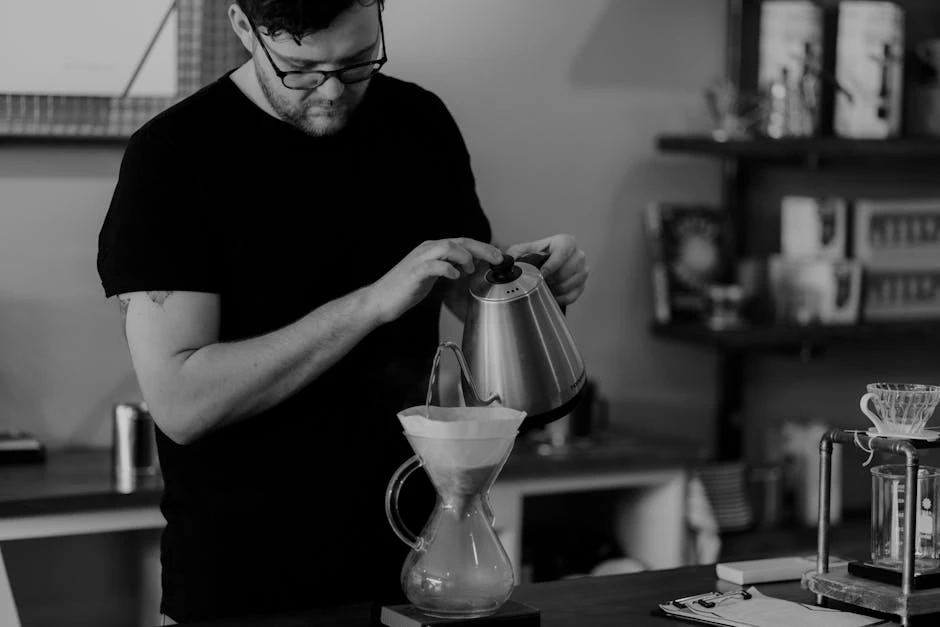
Coffee-to-Water Ratios & Grind Sizes by Brew Method
Read More →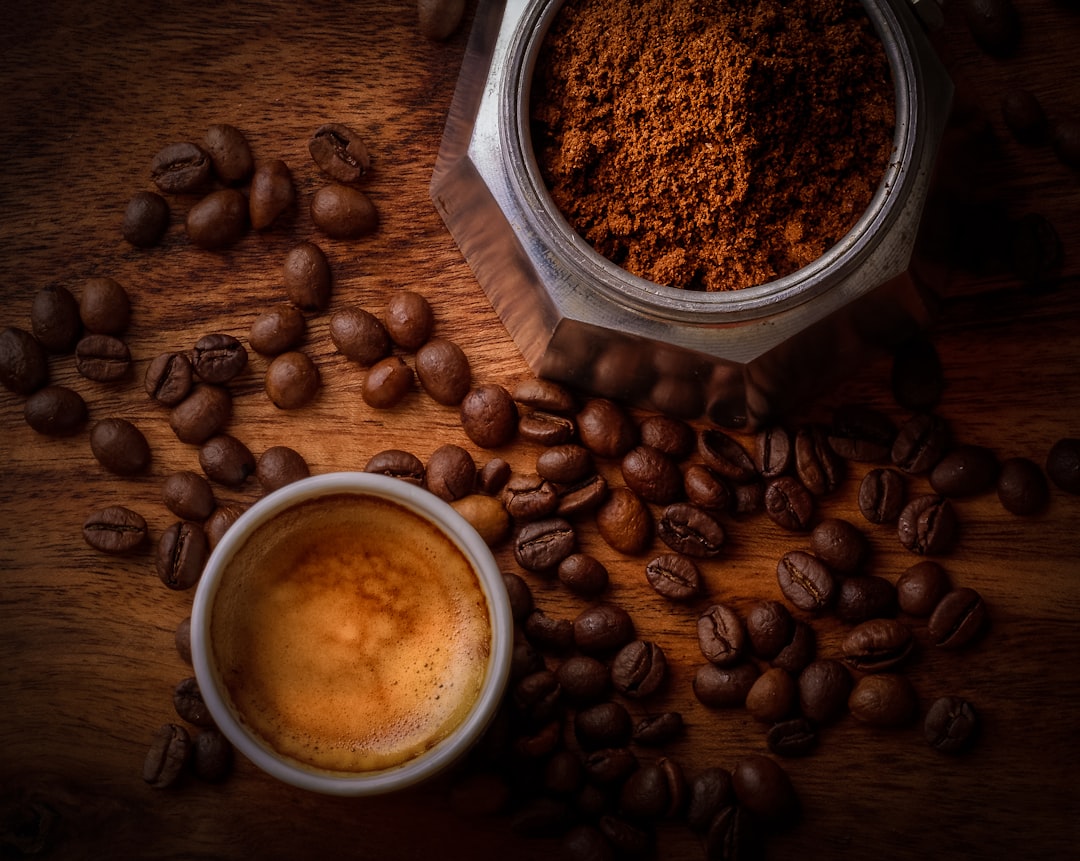
How to Make Coffee Less Bitter: 6 Easy Tips for a Smoother Cup
Read More →